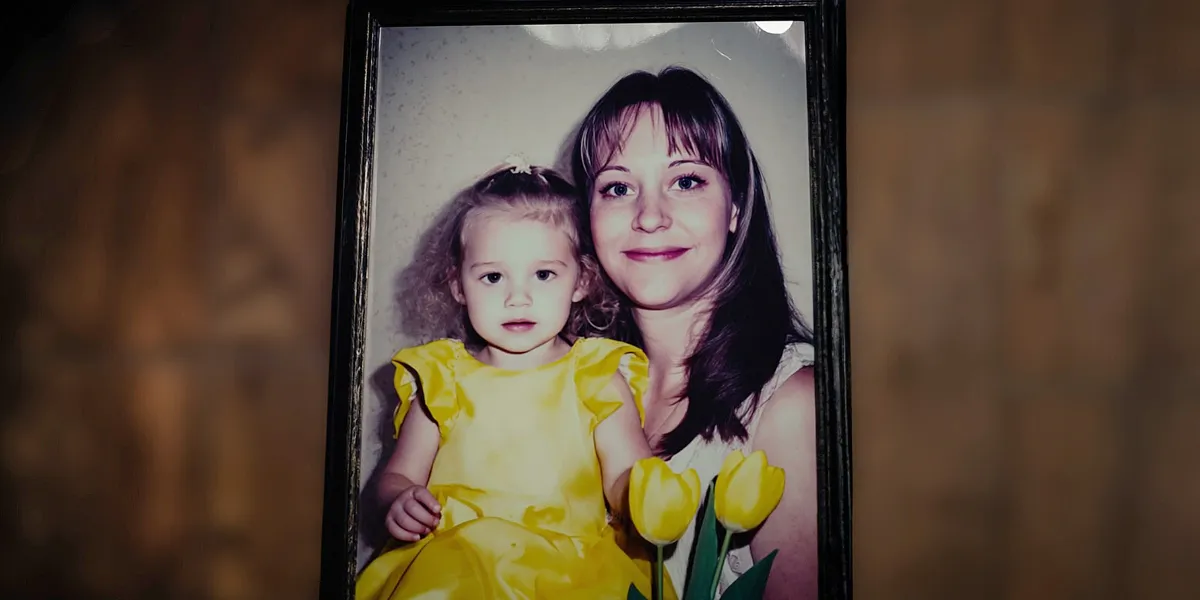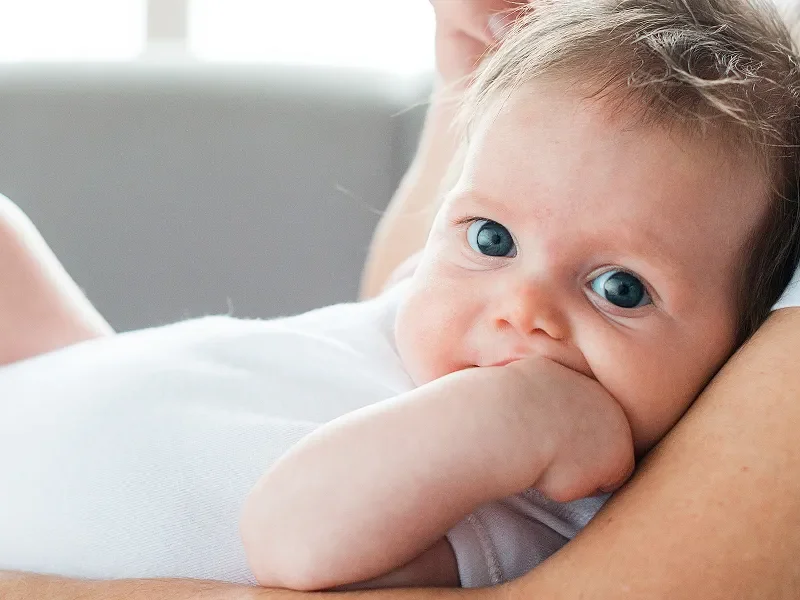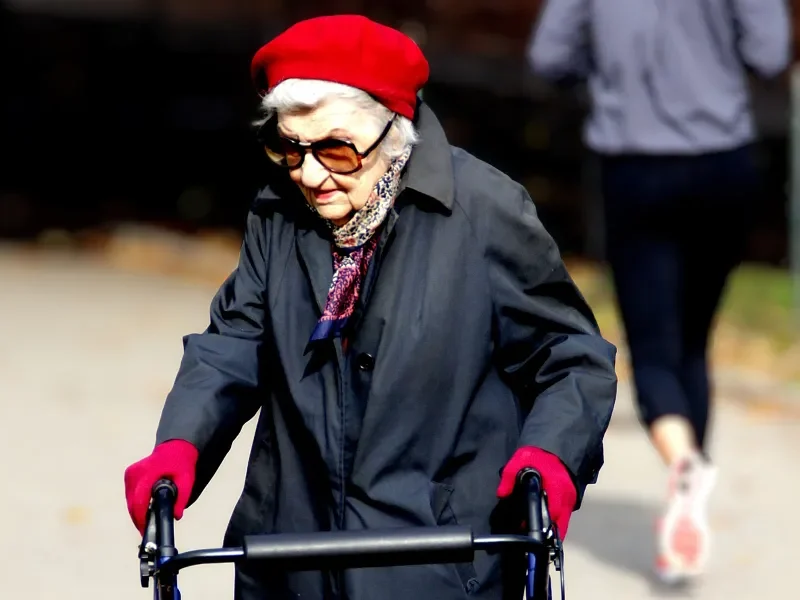When her stepmother throws away the one photo that kept her mother’s memory alive, Selena says nothing — except a quiet warning. What unfolds next unravels secrets, exposes loyalty, and proves one simple truth: some actions come with consequences no apology can undo.
When my mom, Samantha — Sam to everyone who loved her — passed away, I was ten. She had been sick for two years before that, and by the end, the only thing that made sense in our house was that framed photo on the mantel.
It was me, about six years old, arms wrapped tight around the waist, both of us laughing so hard the camera caught it mid-motion. She was wearing her favorite summer dress, the one with the soft white buttons and little sunflowers stitched along the hem.
That dress always smelled like sunshine and fabric softener. And her perfume still lingered in the hallway, vanilla and lavender, soft and ghostlike. Some nights, I’d swear I could smell it drifting past my door, like she was checking in on me one last time.
The photo sat in the center of the living room like a heartbeat.
My dad, Matthew, kept it there after she passed. He didn’t say much about it, just dusted the frame sometimes, gently, like it was something sacred.
Once, I caught him standing in front of it, his hand resting on the wood like it anchored him.
“She’d like knowing she’s still with us, Selena,” he said.
We didn’t have altars. We had that frame. That single photo — that moment frozen in time.
And for years, it stayed right where it belonged — through birthdays, graduations, even the first time I came home from a week-long field trip. The frame never moved.
Until Linda moved in.
And the day that frame went missing was the day everything else began to unravel.
I didn’t know it then, but a single photo was about to tear a hole straight through her carefully curated world.
Dad met Linda four years after Mom died. I was old enough to understand what dating meant, but young enough to still believe no one could take Mom’s place.
Linda wasn’t unkind at first. Just polished, and a bit cold. She looked like she was heading to a lunch where appearances mattered more than conversation. She wore silk like it was skin and smiled like it hurt.
Her laugh had a sharp edge to it, like every sound she made was trying to prove something. I tried to be polite. I really did. She complimented my hair once. I told her thank you. She made gluten-free lasagna. I ate it.
And the entire time… I watched my dad smile in a way I hadn’t seen in a long time, and I told myself that maybe it didn’t have to feel like betrayal.
But she hated that photo — the one on the mantel.
From the moment she stepped into our house, her eyes landed on it with that little twitch of distaste.
“That old thing doesn’t match the color scheme,” she said once. “It needs a lighter frame… or something.”
“Wouldn’t it be better in your room, Selena?” Linda asked another time. “Somewhere more personal?”
“It stays,” Dad always said, giving the same two words as his answer. And it was always in his calm and final tone.
I remember one day, mid-renovation spree, she picked up the frame and turned it over in her hands, her mouth pulled into a tight frown.
“The colors are all faded.”
“That’s what happens with memories, Linda,” I said, looking up from the kitchen table. “They don’t come pre-filtered or… perfect.”
She rolled her eyes and muttered something about people needing to let go.
And then one afternoon, I came home from class and knew something was wrong before I even set my bag down. The air felt… off. Lighter, somehow, in the wrong way.
I turned toward the living room and stopped cold. The mantel was bare. And the photo?
It was gone.
Instead, there was just a clean, dustless square where it used to sit.
My heart dropped.
“Linda?” I called, already knowing.
She was in the kitchen, sipping a cup of Earl Grey and flipping through a magazine like she hadn’t just pulled a pin from a grenade.
“Where’s the photo that was here?” I asked simply.
She didn’t even look up from her magazine.
“Oh, that old thing, Selena? I threw it out. You’re grown now. It’s time to move on from the past, my girl,” she said.
My entire body went cold, the words hitting me like slaps from all sides.
“You… threw it out? You threw my mother’s frame out?!”
Linda sipped her tea and gave me a tight shrug.
“Lord, don’t be dramatic. It was just an old frame with a faded picture that wasn’t even cute! You know what? Let’s compromise! You should make a new one with me! I’ll even buy you something nice to wear.”
Linda smiled when she said it — like she genuinely thought she was offering some kind of upgrade.
I just stood there. Still. My arms felt heavy at my sides and my chest tightened around something that felt like grief wrapped in rage.
Not because she tossed a picture, but because she didn’t even ask. That photo had been there longer than Linda had been in our lives. It had been around longer than any of her trendy furniture, and much longer than her name appeared on our mailbox.
And yet, she acted like it was clutter.
“You have no idea what you’ve just done,” I said, quieter now. My voice wasn’t shaking, but something inside me was. “You’re going to regret it, Linda.”
My stepmother laughed like I’d just told her a joke she wasn’t clever enough to understand.
“Oh really, Selena? What, did I throw away some kind of holy relic or priceless heirloom?”
I looked her dead in the eye, unblinking.
“In a way,” I said. “Dad hid an envelope behind that photo. It was meant for you. He told me about it a long time ago and said that it was a surprise that would change your life. He told me that he hid it there because he figured that it was the one place you’d never look.”
Her magazine slipped slightly in her lap.
“You’re lying,” she said quietly.
“Am I? Why don’t you go check the trash?”
For the first time, she looked rattled. Her fingers twitched, her mouth opened, then closed. I could see the math running through her head — what if it was true?
“Where did the trash go?” she asked, her voice sharp. “I threw it away last night. And the trash was fetched…”
“Probably the dump, Linda,” I said, turning to leave the room. “Maybe you’ll get lucky.”
I didn’t wait for her reply. I just walked down the hall to my room and closed the door behind me. Ten minutes later, I heard the front door slam.
Then the unmistakable sound of her SUV pulling out of the driveway.
I peeked through the blinds and there she was — Linda, freshly changed, her bun starting to come undone, and her face twisted into something halfway between panic and fury. She gripped the steering wheel as she drove off.
She was heading to the dump.
I didn’t even smile. I just went back to the living room and sat on the couch, waiting.
When Dad came home, he stepped through the door with a grocery bag and stopped mid-stride. His eyes immediately landed on the mantel.
“Where’s the photo of Mom, honey?” he asked.
“Ask your wife,” I said simply.
“Where is she? What did she do?!”
“She left about two hours ago, Dad.”
My father nodded and pulled out his phone. He called Linda, but there was no answer.
And then we both waited.
It wasn’t until nearly dinnertime that we finally heard the front door creak open.
The smell hit first — wet trash, rotting food, and something much darker. It was the kind of bitterness that clings, even when you think you’ve rinsed it off.
Linda stood in the doorway like a woman who’d been dragged through hell. Her silk blouse was ripped and smeared with mud, her arms streaked with grime, and her hair was tangled in clumps, sticking to her flushed face.
For a split second, I saw something else in her eyes. It wasn’t just rage, but panic. The kind that comes from knowing you’ve never truly been wanted, only tolerated. Maybe she’d never felt like she belonged, not in this house, not anywhere.
She looked like someone who had crawled through a landfill chasing her pride — and lost it there.
In one jerking motion, she threw something onto the floor. It landed with a heavy crack. The photo frame. It was muddy, cracked, and bent out of shape.
A few shards of glass still clung to the corners like broken teeth.
“There was nothing in it!” she screamed. Her voice cracked under the weight of fury and humiliation. “There was no envelope! You should have told me if there was something in it! Matthew! What the hell is wrong with you and your daughter?”
Dad’s face moved slowly, shifting from confusion to something heavier — realization. His eyes narrowed, then flicked toward me.
“I didn’t tell Selena about the envelope,” he said carefully. “How did she know?”
Linda spun on me, eyes wide with rage.
“You lied to me! You said there was something behind it!”
“There was,” I said, folding my arms and meeting her gaze.
“You remembered, honey?” Dad asked, looking at me with a mixture of surprise and calm understanding.
“You told me a while ago,” I said. “I didn’t know what it was. Just that it was meant for her.”
“Linda, there was something behind the photo,” he said. “But I took it out yesterday.”
Color drained from Linda’s face.
“I saw you hovering around the frame again,” he added, voice firm now. There was no softness left. “So I moved it. It was supposed to be a birthday surprise.”
“What… what was it, Matthew?” Linda asked, her lower lip quivering.
“There were two tickets in there. To Miami for two weeks. To a beautiful all-inclusive spa resort,” he said, and his voice lost its edge, softening into disappointment. “And that wasn’t all. I was going to tell you about the woodland cabin I found. I’ve been wanting to buy it for you… somewhere you could call your own to write.”
Linda just stared at him, her mouth parted, too stunned to blink.
And for once, she didn’t have a single word to say.
“It was supposed to change your life,” Dad said. “I thought you were the kind of woman who respected this family. And who understood what mattered to us. But today, after this nonsense, I realized something else.”
He turned to me, and his entire face softened, the tension in his jaw finally unclenching.
“I think I’ll take my daughter instead. She deserves so much joy in her life.”
Linda’s breath caught and she stumbled back a few steps.
“You can’t be serious, Matthew.”
“I am. You bet I am.”
She looked between us, searching for sympathy and finding none.
“Your precious daughter tricked me. She humiliated me by sending me to a dumpsite! And for what? A stupid frame?”
“My child protected what matters to us, Linda!”
I didn’t say anything. I didn’t need to.
“Pack your bag, sweetheart,” Dad said, looking at me with a smile. “We’re leaving tonight.”
We didn’t say goodbye to Linda. And as we pulled out of the driveway, I turned in my seat and looked back through the rearview mirror. Linda stood on the porch in her filthy blouse, makeup smudged, her hair a mess, clinging to the door like it was her last lifeline.
She looked so small, so pale. And for the first time, maybe she finally saw what she’d thrown away.
Dad didn’t speak until we were halfway to the airport. He reached across the center console and gently took my hand.
“I’m sorry you had to see that, my girl.”
I looked over at him. His shoulders were tense again, but this time, there was relief too.
“It’s okay,” I said quietly. “Mom would’ve hated what the house became.”
“Yeah, I think she handled it herself,” he said, his eyes still on the road.
The suite in Miami overlooked the water. The air was warm, the windows wide open, the sound of the ocean steady in the background. A bottle of champagne chilled on the table, untouched.
The next morning, he handed me a small package wrapped in tissue paper. Inside was a new frame. It was sleek — the kind of thing Linda might’ve approved of.
When I lifted the wrapping, my throat tightened. Inside was the same photo — Mom in her yellow dress, me wrapped around her waist, both of us mid-laugh.
“I grabbed the photo while you were packing, Sel,” Dad said softly. “Mom’s still here. She always will be.”
We put the frame up on the coffee table in the suite — so we could see Mom all the time.
That night, I didn’t dream of losing her.
I dreamed of her dancing again, barefoot in the grass, her yellow dress glowing like sunlight.
When we returned home two weeks later, the house was quiet. The kind of quiet that felt like something had been cleared out — not just furniture, but tension.
I walked through the doorway and felt it immediately. Linda was gone.
Her closet was empty, her toiletries were cleared from the bathroom. And her fancy teas were missing from the kitchen. The throw pillows she insisted on layering across the bed were stacked in a pile by the door.
On the kitchen counter sat a single sheet of paper, folded in half.
My father opened it first, scanned it, and passed it to me.
“I’m sorry. I was jealous of a dead woman. And now I’ve lost everything. —L”
I read it twice. Not out of sympathy, but to let the words settle in my bones. I didn’t feel triumphant or anything of the sort… I just felt calm.
“She finally admitted it, huh?” Dad sighed.
Then, without ceremony, he dropped it in the trash.
“Now, let’s get that frame back onto the mantel,” he said, his smile small but warm.
We walked together to the living room. The square of dustless wood still marked where it used to sit.
He handed it to me, letting me place it myself. I set it gently in the center, just like it had always been.
Same place. Same light. Same memory.
But this time, the air felt clearer and the space finally breathed again.
I looked around the room and then back at the frame.
“It finally feels like home again, Dad,” I said. “Now, let’s bake Mom’s favorite chocolate cake.”
We did, adding the ingredients in together and laughing about the time I’d almost eaten the entire cake myself and had to stay home because of a tummy ache.
“I’m sorry, Dad,” I said as we sat at the kitchen table with slices of cake.
“Don’t be, my darling,” he said. “This is how it always should have been… I just got caught up in my loneliness and I thought that Linda could fix it. But I didn’t need another person, I just needed to find my peace with Mom’s passing. And I have. And now, my focus is you.”
I smiled at my father, and for the first time in a long time, I believed that he would truly put me first.


